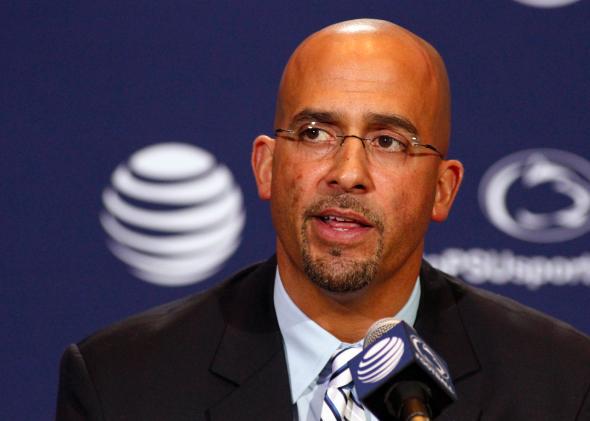In December, the University of Michigan expelled football player Brendan Gibbons for sexual misconduct.* This could be seen as a step in the right direction—a Division I football player is being held accountable for his transgressions—but it took four years for the university to act on the assault allegations against Gibbons, according to the Michigan Daily. Between 2009 and 2013, Gibbons was starting kicker for three seasons at Michigan. It is as yet unclear why the university took so long to act on the accusations, but it doesn’t seem like a huge stretch to wonder if the power of the athletic department had something to do with it.
It seems like every week there’s another story of a university failing to comply with Title IX by not taking immediate action to investigate a star athlete for sexual assault. Last week, it was the University of Missouri. ESPN’s publicizing the suicide of alleged victim Sasha Menu Courey after her rape has led to the university police finally turning information over to municipal police, again four years after the assault and three years after Menu Courey’s suicide. Last year alone, according to a roundup on Power Forward, sexual-assault accusations were made against football players at Ohio State, Florida State (not just against quarterback Jameis Winston, but also against receiver Greg Dent), Arizona State, Vanderbilt, and UCLA.
What’s most infuriating about a lot of these stories is that the victims are doing everything “right” in order to get justice: They’re reporting their rapes to their universities, and in some cases they’re also reporting their rapes to municipal police. (Remember here that 60 percent of rape victims don’t report the crime.) They’re going to the hospital and getting rape kits. But in the Florida State, Michigan, and Missouri cases, the colleges have taken years to investigate and often only after outside publications have pressured them.
It makes you want to throw your hands up in disgust, but instead of just doing that, I asked Katherine Redmond Brown, founder of the National Coalition Against Violent Athletes, how to address this problem that doesn’t seem to be letting up. There are some statistics that show that male student-athletes are much more likely to commit sexual violence than the average student, so it’s a rape culture problem, Redmond Brown says, that needs to be addressed with education starting in high school for male athletes. (See Maryville, Mo., and Steubenville, Ohio, if you don’t think the issue is starting before college.) These boys are taught from a young age that “part of the reward for athletes is women,” Redmond Brown says.
This attitude that women are a “reward” is something that even coaches perpetuate. In a USA Today column, Christine Brennan argues that Penn State should not have hired Vanderbilt football coach James Franklin —not just because four of his Vanderbilt players were charged with raping an unconscious woman (and one was charged in the cover-up), but because Franklin is on record saying things like, “I’ve been saying it for a long time: I will not hire an assistant coach until I’ve seen his wife. If she looks the part, and she’s a D-1 recruit, then you got a chance to get hired. That’s part of the deal.”
That one of the Vanderbilt players was charged with a cover-up points to another culture problem that Redmond Brown identified. “Coaches often push bystander intervention,” as a rape prevention strategy, Redmond Brown says, which often completely backfires. “When you’re dealing with athletes, their department also reinforces team as family.” So the players believe, “You don’t do anything to bring down the team,” and they know a rape charge would really mess up a season.
Legally, Redmond Brown applauds the use of Title IX lawsuits, which are an increasingly popular strategy for college women who are raped to finally get justice. Alissa Quart points out in a TakePart article about this strategy that the number of sexual misconduct complaints against colleges and universities has gone up from 11 in 2009 to 29 in 2013. But a Title IX suit can be a protracted process, and it goes without saying that it would certainly be better to just stop football players from sexually assaulting women so frequently.
In all the stories I’ve read about rape allegations against football players while I was preparing to write this post, the only organization that seemed to take a hard-line stance against sexual violence was the New England Patriots—both in Redmond Brown’s case (her rapist, Christian Peter, was cut from the Patriots after his history of sexual violence was revealed) and also in the case of all-pro running back and serial rapist Dave Meggett.*
Meggett was accused of raping a Toronto escort, and even though his trial resulted in a hung jury, the Patriots released him. According to a long-form SB Nation article about Meggett’s sordid history, Patriot’s owner Bob Kraft has a zero-tolerance policy on sexual violence. It feels pathetic to single the Patriots out for praise for a policy that should be obvious for everyone, but in too many cases, the people in charge of college and pro teams are willing to overlook a whole lot for a killer arm.
Correction, Jan. 30, 2014: This post originally misspelled Christian Peter’s last name. It also stated that Brendan Gibbons was expelled in January. He was expelled in December.
